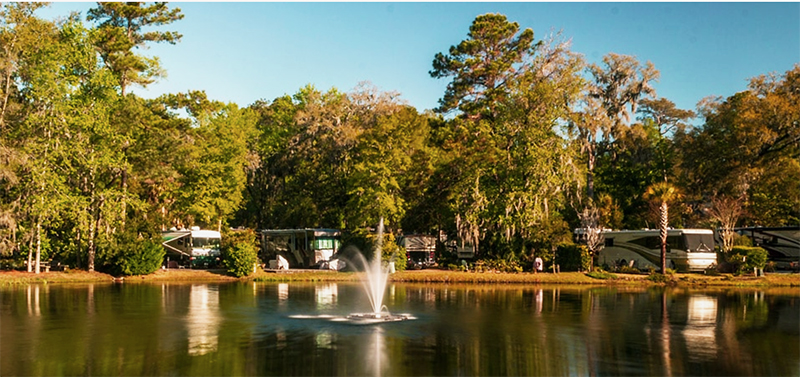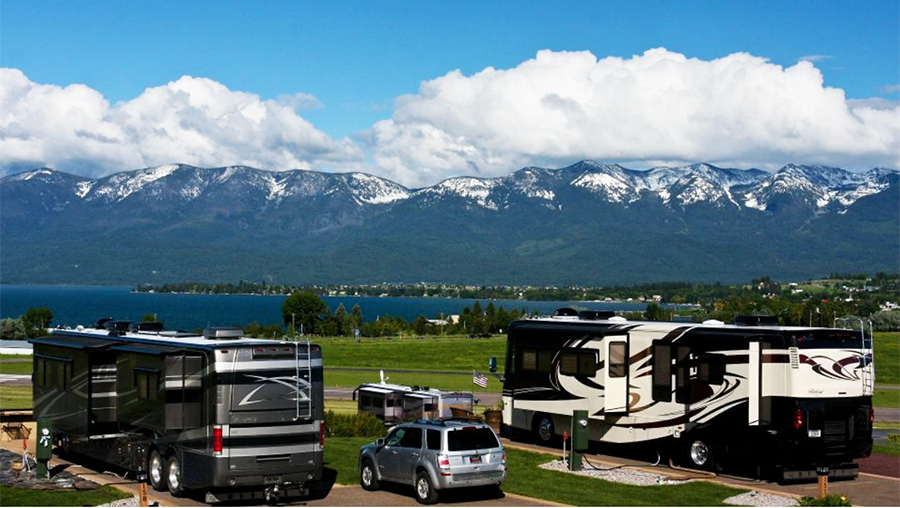By Eric Smith
<span style="color: #999999;">The timing of a strategy shift can be just as important as what it entails, and Camping World Holdings Inc.’s decision to exit outdoor retail last year—well ahead of the current COVID-19 pandemic—has proved rather auspicious.
There was some short-term pain from the impact of the coronavirus, of course. The Lincolnshire, IL-based company on Thursday reported first-quarter revenue decreased 3.5 percent to $1.03 billion primarily as a result of the company’s strategic shift in 2019 and the impact of the COVID-19 pandemic.
But that figure crushed Wall Street’s expectations by $53.5 million. And Camping World’s recent move could bode well for the company moving forward.
“Overall, we are pleased with our first-quarter results, especially considering the impact of the pandemic at the end of the quarter,” said Marcus Lemonis, chairman and CEO of Camping World Holdings. “With our current expense structure, positioning of our inventory and what we consider to be sufficient liquidity and working capital, we believe we are well-positioned to take advantage of the positive trends we are seeing in our business and to grow market share.”
…
That positioning showed up elsewhere in Camping World’s Q1 earnings report. The company reported that non-GAAP EPS of -3 cents beat estimates by 12 cents, though GAAP EPS of -22 cents missed by 11 cents.
Income from operations was $13.3 million and net loss was $14.1 million, including restructuring and long-lived asset impairment costs of $13.4 million primarily related to the 2019 Strategic Shift away from locations that do not sell and/or service RVs.
Also, gross profit increased 1.5 percent to $302.7 million and gross margin increased 144 basis points to 29.5 percent. And adjusted EBITDA increased 68.5 percent to $36 million.
The company’s shares (NYSE: CWH) have been on a two-month rebound after falling drastically beginning at the end of February. They fell about 75 percent from February 21 to March 20 but have increased more than 200 percent since, including a 30 percent spike in early Friday trading.
One reason: the company’s realignment, or “strategic shift,” that revolved around Camping World pivoting “away from locations where we did not have the ability or where it was not feasible to sell and/or service RVs,” Lemonis in February.
The company closed or sold more than 60 such locations, primarily those under the Gander Outdoors banner. That move took a toll on 2019 results—and carried over into Q1 2020—causing some short-term revenue and earnings pressure. But as Camping World turns the page on its retail model and refocuses on its core RV business, the company indeed appears better positioned for 2020 and beyond.

“After almost two months into the year, we are very encouraged with the results we’ve seen so far,” Lemonis told analysts on the Q4 2019 earnings call. “Demand is better, margins are better, and our customer and employee experience is better.”
These moves are all part of Camping World’s reinvention into a “pure-play RV retail company,” a term that Lemonis coined and which SGB Executive detailed in a report last year. They also speak to the company’s admission of some past missteps when dabbling in outdoor gear sales.
“We elected to aggressively execute this plan,” Lemonis said. “And while it had an impact on last year’s 2019 results, I’m proud that we accomplished it and it’s behind us. As we sit here today, all the locations that we identified in the strategic shift have been closed, the product has been liquidated and we have finished that process. This shift has positioned us for significant improvement in our overall performance both this year and beyond.”
…
<span style="color: #999999;">The company’s shift away from outdoor retail seems especially prescient considering the current landscape. With most retail doors shuttered due to the coronavirus, Camping World reduced its exposure to that short-term pain.
Of course, Camping World exited the space for different reasons altogether, and it could be argued that the company shouldn’t have been so aggressive with its outdoor retail play.
In May 2017, the company paid $37 million for Gander Mountain out of bankruptcy. and then followed that move by adding some outdoor specialty assets. In October of that year, Camping World acquired Uncle Dan’s for $8.2 million.
In January 2018, under the Uncle Dan’s subsidiary, Camping World acquired Earth Sports LLC, dba Erehwon Mountain Outfitters, for $3.5 million. And in April 2018, Camping World acquired Rock/Creek Outfitters Inc. for $5.2 million.
But the company has since repurposed, closed or sold many of those stores—moves that, at the time, seemed like an admission of a misstep but now seem serendipitous.
As Lemonis said in February: “From a footprint standpoint, as we think about our growth over the next five years … we are on pause for the foreseeable future in adding locations because we believe there is a lot of juice to squeeze out of the orange we have today, both with the combination of the stores we’ve added and the historical stores that experienced softening in the back half of 2018 and 2019. We want us to come back to the levels that we’re comfortable with and get our EBITDA margins and our cash flow back to a level where we feel good.
And even though RV sales fell 20 percent in March, there is optimism that this category could rebound in 2020 once the country emerges from this crisis. Even if Americans can’t—or aren’t willing to—fly anywhere for summer vacations, campgrounds are expected to open sooner than some other recreation venues. And many will be looking for a new or used rig to help them socially distance.
Photos courtesy Camping World
















